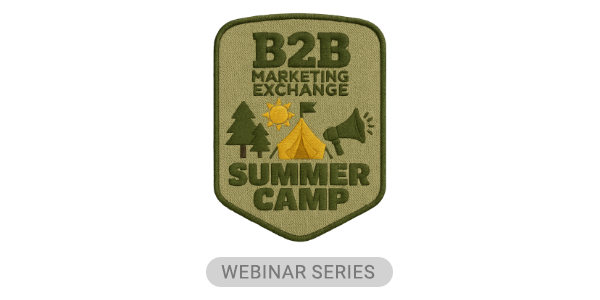 The concept of agile marketing is white hot. According to the recent CMG Partners report, Agile for Marketing (A4M), 63% of marketing leaders cite agility as a high priority. However, only 40% of marketers rate themselves as agile.
The concept of agile marketing is white hot. According to the recent CMG Partners report, Agile for Marketing (A4M), 63% of marketing leaders cite agility as a high priority. However, only 40% of marketers rate themselves as agile.
One of the hallmarks of an agile technology team is a continuous, transparent feedback loop across development and operations. When it comes to agile marketing, you’ll want a similar collaborative culture to identify and solve problems in real-time.
What does real-time mean for the marketer? The connected customer is “always on.” Marketers are no longer restricted to small windows of opportunities to reach prospects. There are multiple occasions to connect with buyers as they switch from screen to screen and device to device, with limited attention spans.
While there is still a place for long-term campaigns, the truth is that with this approach you risk being out of date before your campaign is even launched. This is an age in which the hare beats the tortoise, in which sprinting a mile is better than jogging a marathon. This is the era of agile marketing.
In its simplest form, this new approach means moving away from the “waterfall method” of marketing — the traditional lengthy development process associated with most marketing campaigns — to short iterations.
The need for increasingly targeted, but ultimately shorter-term, campaigns has been driven by a series of recent developments within the marketing community. As social networking has grown in popularity and mobile internet technologies have improved, customers now expect to communicate with brands instantaneously and will actively avoid those that fail to deliver on this anytime, anywhere, any channel world.
I have spent some 27 years as a sales and marketing professional, and for the last 10 years I have prided myself with perfecting the “product marketing discipline.” Yet, I’m here to tell you that that role as it has existed no longer applies.
While many marketers are still wary of this “always-on” communication strategy, the brands that embrace it early on that will ultimately reap the benefits. After all, agile marketing is just another way to improve customer connections and increase your response time when it comes to managing customer needs.
With a bit of help from agile marketing evangelist Scott Brinker we put together six key principles to get started on your agile journey:
- Experience but be focused. It is all too easy to confuse responsive agility with short-term thinking and a lack of campaign planning. Make sure you know what you are trying to achieve with each iteration.
- Be adaptable. As a marketer you need to know you can’t just expect everything to be mapped out flawlessly every three months. There will always be things that come along, so diversify your plans.
- Prioritize the problem. There’s no shortage of marketing problems to solve. Know your priority and throw time and energy into your biggest problem first.
- Empower your team. Sometimes the biggest problem is the management barrier. Give your team the right tools and power to tear up processes, when they need to, and encourage creativity and execution in real-time.
- Test relevance. Test fast, fail fast and learn fast from your data. Success is a process rather than an end product.
- Bonus: Don’t Ignore the Mix. As with all the tools in a marketers’ arsenal, agile marketing is just one (increasingly important) part of a wider marketing mix. Overall, it’s about finding a balance between the long and the short term.
Agile is a bold new frontier. Some marketers will relish the opportunity to shake things up and embrace agile, but others are not necessarily able to make that leap. It requires a new type of individual and skill set — someone that can run fast and have fun. It’s not for everyone, but the payoff of using agile in marketing can be tremendous.
James Norwood is EVP, Strategy, and CMO for EPiServer. With over 25 years of experience within enterprise business software, James has a proven track record in product strategy, sales and marketing, M&A, brand creation and development, and has detailed industry knowledge. James most recently served as Senior Vice President and CMO at KANA Software, Inc. from 2011 until its acquisition by Verint Systems in 2014. Prior to that James served as SVP of Worldwide Product Strategy and Marketing at Epicor Software.







